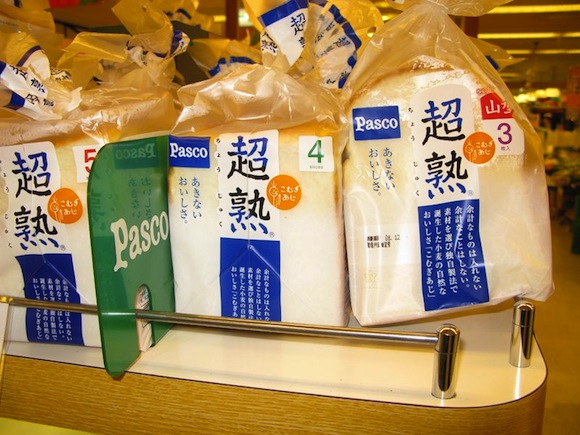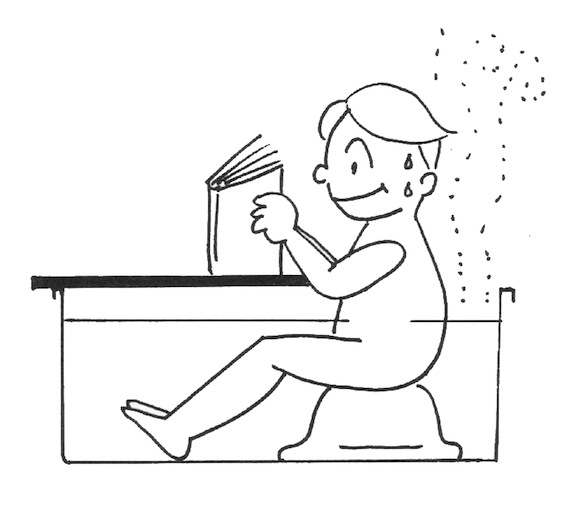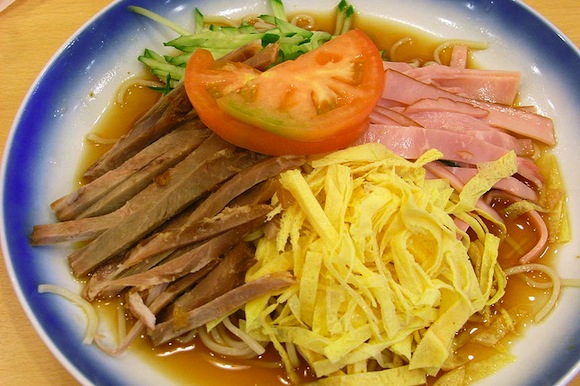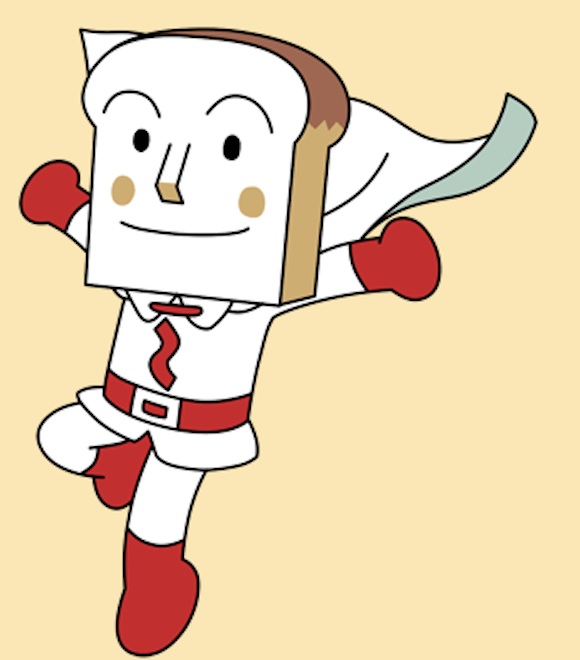
Japan has its own version of Yahoo! Answers, the question and answer site where you can ask anything and receive a quick reply from other users. The Japanese site is named Yahoo! Chiebukuro (“Yahoo! brains” or, more literally, “knowledge bag”), and as this collection of the best Q&A sets shows, the questions people ask range from the bafflingly inane to the unexpectedly profound!
As we’re about to see, Japan has its fair share of loveable idiots as well as geniuses!
1. Technology

Question: “How do you google using Yahoo?”
In Japanese, as in English, you can use the word “google” as a verb, as in “I googled it” or “why don’t you just google it?”, which we think you’ll agree sounds much better than the rather clunky-sounding “do an internet search” that Google’s competitors would likely prefer we said.
It’s often possible in Japanese to make a noun into a verb by throwing -ru on the end of it. So jiko (事故) means “accident”, and jikoru (事故る) means to have an accident; daburu (ダブる), to coincide or duplicate; saboru (サボる) to play truant. Google, or guuguru in Japanese, therefore already sounds like a verb.
As we’re sure you probably guessed, the questioner here wants to know how to perform a search on Yahoo. It’s worth pointing out that Japan is one of the few countries where Google has yet to destroy all search engine competition.
Answerers were generally very supportive, patiently explaining that although we use the word “google” as a verb, it comes from Google’s name, and can’t really be used to mean searching on another site. Nevertheless, this Yahoo! Answer seems to have tickled Japan’s funny bone, racking up over 200,000 page views to date.
2. In the bath
Question:
“My friend told me to try half-body bathing, only putting half of my body under the water when I take a bath. I tried it out but I got water in my nose and my ear. Which side are you supposed to lie on? Your right or left?”Best answer:
“You put your bottom half in the water. Not your left or right side.”
Being the nation of bath-lovers that they are, the Japanese have a special word for “half-body bathing” – hanshinyoku (半身浴), also known as not filling the bath up all the way.
▼ Or, as in this example, filling the bath up all the way but then choosing to sit on a tiny stool instead.
3. Music
Question: “FRESH GOOD DAY, FRESH GOOD DAY, kotoba ni dekinai…laalaala lalaala…
Does anyone know what this song is? It’s driving me crazy not being able to remember.”Best answer: “Er, isn’t that “Kotoba ni dekinai” [1982 song from folk rock band Off Course]?”
It turns out that this questioner has misheard the line ureshikute ureshikute, (“happy, happy”) as the English words “fresh good day, fresh good day”! We listened to the song and it really does sound like “FRESH GOOD DAY”!
▼ “Furesshu guddei” or “ureshukute”? Listen from 4:00
The next question is: why did they need to ask, when the title of the song (“kotoba ni dekinai”) is contained in the line they can remember? Come on guys, seriously, google it on yahoo if you’re not sure!
4. Food
Question: “Are chilled Chinese noodles cold?”
We reckon this one is probably a deliberate joke, but it’s so cute we wanted to share it anyway! A nice little pun based on the pronunciation of hiyashi chūka (冷やし中華) meaning “chilled noodles”, and hiyashichū (冷やし中) “chilling now” followed by the Japanese question marker “ka“.
Hiyashi chūka (冷やし中華) is a delicious Japanese dish consisting of cold ramen noodles and a vinegary sauce. Hiyashi is “chilled” and the second word chūka (中華) means “Chinese”. If we were to write hiyashichū ka as 冷やし中か instead, though, we get “are they being chilled now?” A groan-worthy joke for noodle (and pun)-loving dads everywhere.
▼ Hiyashi chūka (chuckling joke-teller not pictured).
5. Anime
Question: “Shokupanman’s head is a slice of bread, but how many slices were in the packet?”
Here’s Shokupanman, from treasured children’s anime Anpanman, in which characters are based on bakery goods:
In Japan, half loaves of sliced bread (shokupan) come in regular-sized packets, but with varying thicknesses. Instead of choosing “thick-sliced” or “thin-sliced”, though, the package is labelled with the number of slices in it. So you can choose between four chunky slices or eight finely cut slices, for example.
▼ Japanese sliced bread – the best thing since Anpanman.

Debate raged on this question without reaching any kind of consensus. Is Shokupanman from a four, five, six, or eight-slice bag? You decide!
The best answer was pretty neat, too: “I dunno either, but he’s the second slice.”
The answerer points out that Shokupanman is nimaime (二枚目). Ni means “two”, mai (枚) is a counter for flat objects (like slices of bread!) and me (目) is an ordinal suffix that turns “two” into “second” (just like the English “-st” “-nd” or “-th”). Nimaime, therefore, means “the second thing”, or in this case, “the second slice”.
But nimaime also means a hot guy…which of course we hope you’ll agree Shokupanman is too!
6. Philosophy
Question: “When hotcakes have gone cold, are they still hotcakes?”
Best answer: “They’re hottoita cakes!” [Cakes that have been left alone]
Hottoku (放っとく) means to leave something as it is. Pancakes, meanwhile are called “hotto keeki“. So it only stands to reason that cakes which have been left to go cold are not hot cakes but hottoita cakes!
As we can see, many of these popular posts and replies are riddled with puns and wordplay. This is partly because Japanese is a comparatively homophonous language, having many identical sounding words with different meanings. And partly because the internet is a weird, perplexing, hilarious place where you can tell your best cringe-worthy joke in relative anonymity.
Which Yahoo! Answer did you like the best? Which ones are lost in translation? Let us know in the comments!
Source: Niconico
Top image: Wikimedia Commons Other images: let me Google that for you (edited by RocketNews24), Suguwara Delivery, Wikimedia Commons, Anpanman wiki, Charlie Grosso, youplusmeforalways





 How do you say ‘Google it, you trash’ in British English? Answer surprises many in Japan
How do you say ‘Google it, you trash’ in British English? Answer surprises many in Japan Yakuzen ramen restaurant in Tokyo is very different to a yakuza ramen restaurant
Yakuzen ramen restaurant in Tokyo is very different to a yakuza ramen restaurant Tokyo Skytree turns pink for the cherry blossom season
Tokyo Skytree turns pink for the cherry blossom season Burning through cash just to throw things away tops list of headaches when moving house in Japan
Burning through cash just to throw things away tops list of headaches when moving house in Japan Beautiful blue apple jam is taking the Japanese internet’s breath away!
Beautiful blue apple jam is taking the Japanese internet’s breath away! Studio Ghibli releases new “komorebi” plush toys to brighten your days
Studio Ghibli releases new “komorebi” plush toys to brighten your days Strongest-ever Dodekamin energy drink approved by Japan’s Home Economics Dragon
Strongest-ever Dodekamin energy drink approved by Japan’s Home Economics Dragon Goku’s voice actress’ voice to be converted to AI for “non-acting” projects in Japanese, English
Goku’s voice actress’ voice to be converted to AI for “non-acting” projects in Japanese, English 566 million yen in gold bars donated to Japanese city’s water bureau
566 million yen in gold bars donated to Japanese city’s water bureau “World’s most beautiful Starbucks” gets a makeover in Japan, but is it still beautiful?
“World’s most beautiful Starbucks” gets a makeover in Japan, but is it still beautiful? You should visit Osaka’s first rescue cat cafe so I don’t have to
You should visit Osaka’s first rescue cat cafe so I don’t have to The 10 most annoying things foreign tourists do on Japanese trains, according to locals
The 10 most annoying things foreign tourists do on Japanese trains, according to locals Starbucks Japan releases new sakura goods and drinkware for cherry blossom season 2026
Starbucks Japan releases new sakura goods and drinkware for cherry blossom season 2026 Naruto and Converse team up for new line of shinobi sneakers[Photos]
Naruto and Converse team up for new line of shinobi sneakers[Photos] Is Sapporio’s Snow Festival awesome enough to be worth visiting even if you hate the snow? [Pics]
Is Sapporio’s Snow Festival awesome enough to be worth visiting even if you hate the snow? [Pics] Japan has trams that say “sorry” while they ride around town…but why?
Japan has trams that say “sorry” while they ride around town…but why? Sakura Totoro is here to get spring started early with adorable pouches and plushies
Sakura Totoro is here to get spring started early with adorable pouches and plushies Starbucks Japan unveils new sakura Frappuccino for cherry blossom season 2026
Starbucks Japan unveils new sakura Frappuccino for cherry blossom season 2026 Poop is in full bloom at the Unko Museums for cherry blossom season
Poop is in full bloom at the Unko Museums for cherry blossom season Now is the time to visit one of Tokyo’s best off-the-beaten-path plum blossom gardens
Now is the time to visit one of Tokyo’s best off-the-beaten-path plum blossom gardens Playing Switch 2 games with just one hand is possible thanks to Japanese peripheral maker
Playing Switch 2 games with just one hand is possible thanks to Japanese peripheral maker Japan’s newest Shinkansen has no seats…or passengers [Video]
Japan’s newest Shinkansen has no seats…or passengers [Video] Foreigners accounting for over 80 percent of off-course skiers needing rescue in Japan’s Hokkaido
Foreigners accounting for over 80 percent of off-course skiers needing rescue in Japan’s Hokkaido Super-salty pizza sends six kids to the hospital in Japan, linguistics blamed
Super-salty pizza sends six kids to the hospital in Japan, linguistics blamed Foreign tourists in Japan will get free Shinkansen tickets to promote regional tourism
Foreign tourists in Japan will get free Shinkansen tickets to promote regional tourism Take a trip to Japan’s Dododo Land, the most irritating place on Earth
Take a trip to Japan’s Dododo Land, the most irritating place on Earth Archfiend Hello Kitty appears as Sanrio launches new team-up with Yu-Gi-Oh【Pics】
Archfiend Hello Kitty appears as Sanrio launches new team-up with Yu-Gi-Oh【Pics】 Survey asks foreign tourists what bothered them in Japan, more than half gave same answer
Survey asks foreign tourists what bothered them in Japan, more than half gave same answer Japan’s human washing machines will go on sale to general public, demos to be held in Tokyo
Japan’s human washing machines will go on sale to general public, demos to be held in Tokyo Starbucks Japan releases new drinkware and goods for Valentine’s Day
Starbucks Japan releases new drinkware and goods for Valentine’s Day We deeply regret going into this tunnel on our walk in the mountains of Japan
We deeply regret going into this tunnel on our walk in the mountains of Japan Studio Ghibli releases Kodama forest spirits from Princess Mononoke to light up your home
Studio Ghibli releases Kodama forest spirits from Princess Mononoke to light up your home Major Japanese hotel chain says reservations via overseas booking sites may not be valid
Major Japanese hotel chain says reservations via overseas booking sites may not be valid Put sesame oil in your coffee? Japanese maker says it’s the best way to start your day【Taste test】
Put sesame oil in your coffee? Japanese maker says it’s the best way to start your day【Taste test】 No more using real katana for tourism activities, Japan’s National Police Agency says
No more using real katana for tourism activities, Japan’s National Police Agency says